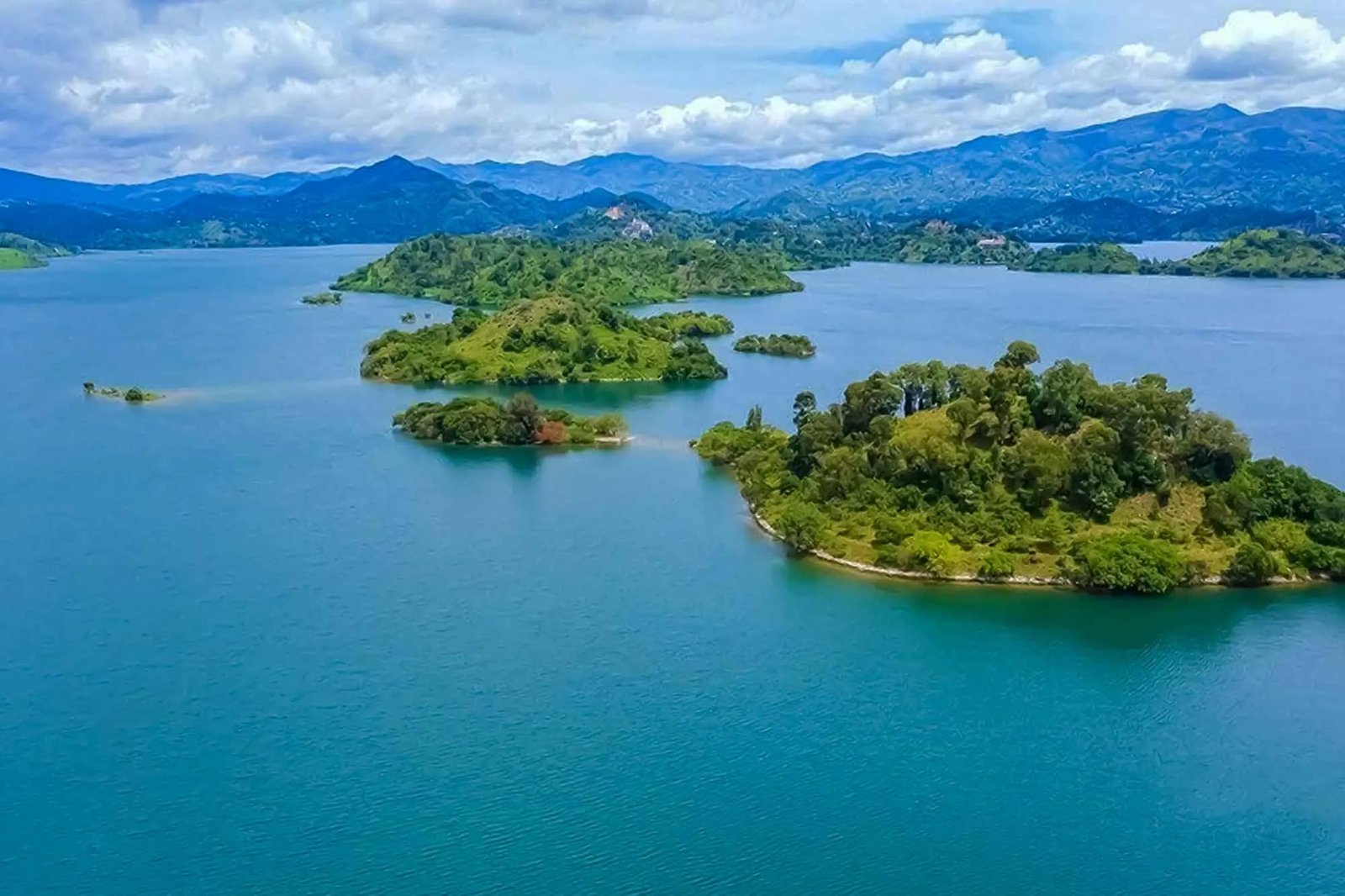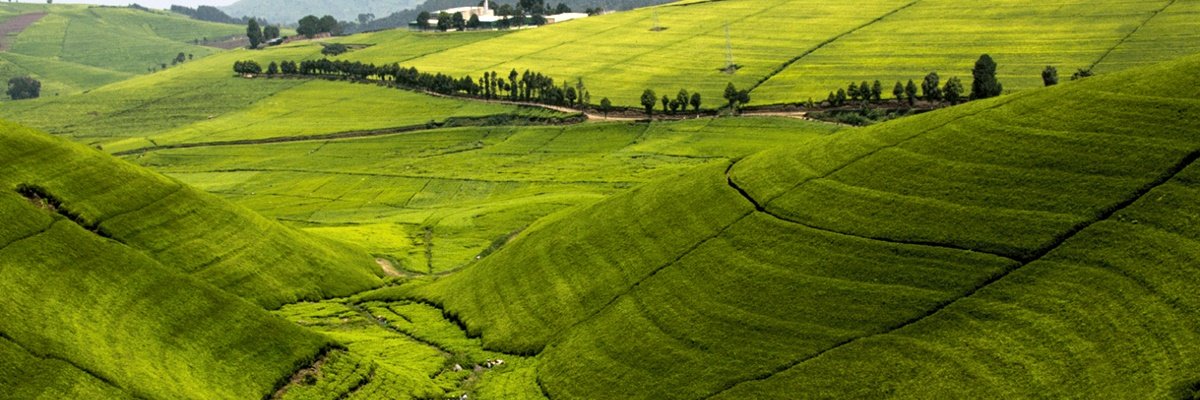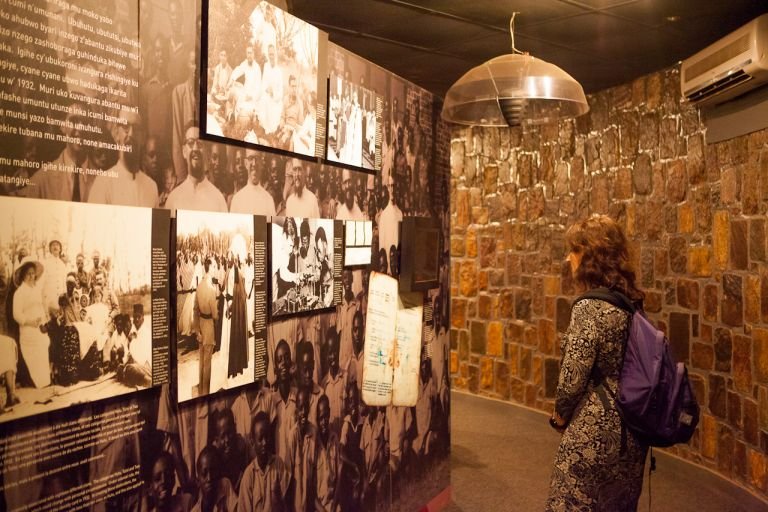Rwanda is a land of great diversity and beauty. Kigali is the capital city of the country. Popularly known as ‘the land of a thousand hills’, and a landlocked country. Rwanda has five volcanoes, twenty-three lakes and numerous rivers, some forming the source of the great River Nile. Rwanda is a small landlocked country in Central Africa bounded by Uganda in the north; by Burundi in the south; on the East is Tanzania; and in the west is the Democratic Republic of Congo.

Industries include cement, small-scale beverages, soap, furniture, shoes, plastic goods, textiles, and cigarettes. Rwanda is a former Belgian territory, French and English are official languages. Over half the population is Roman Catholic with Protestants accounting for one quarter. The legal system and government are based on German and Belgian civil law.
Geography
Rwanda is a landlocked republic in Equatorial Africa, situated on the eastern rim of the Albertine Rift, a western arm of the Great Rift Valley, on the watershed between Africa’s two largest river systems: the Nile and the Congo. Much of the country’s 26,338 km2 is impressively mountainous, the highest peak being Karisimbi (4,507m) in the volcanic Virunga chain protected by the Volcanoes National Park. Population: about 13 million (in 2017) ,Capital – Kigali (est. pop. 1,000,000).Other major cities: Muhanga, Huye, Musanze, Rubavu.

The largest body of water is Lake Kivu, but there are others numerous lakes around the country, notably Burera, Ruhondo, Muhazi and Mugesera, some of which have erratic shapes following the contours of the steep mountains that enclose them.
The landscapes in this ‘green country’ are truly breathtaking. It is one of the most scenic tourist destinations that qualify to be a photographer’s paradise because it boasts wonderful people, awe-inspiring lakes, astonishing scenery, just right climate, rare species of apes particularly the mountain gorillas and an amazing irregular landscape whose valleys and peaks combine with the sky to produce captivating moods. The West coast of the country overlooks the beautiful shores of Lake Kivu.

Rwanda is safe and secure with an overwhelming renaissance of national pride and cultural reconstruction. It is full of sights and delights, waiting to be explored. The country is well known mostly because of it’s horrible past that culminated into genocide against the Tutsi in 1994. Rwanda is experiencing a tourism rebound after falling off the map post-genocide. Due its small size, Rwanda tourist attractions are near each other and can be reached quite easily and safely.

Economy
Primarily a subsistence agriculture economy, Rwanda nonetheless produces for export some of the finest tea and coffee in the world. Other industries include sugar, fishing and flowers for export.
Agriculture
Coffee, Tea …
Industry: Coffee and Tea factories, Textiles, plastics…..
Religion: Christians 60%, Protestants 25% Muslims, 10%, Others5%
Money and currency:
Rwanda’s unit of currency is the Rwandan Franc (RWF): Notes are in denominations of RWF 500, 1,000, 2000, and 5000, while coins are RWF 1, 5, 10, 20, 50 and 100.
It is recommended to travel with US dollars as most banks and Forex Bureaus do not accept traveler’s cheques in exchange for cash.
Only banks, Forex Bureaus, hotels and lodges are authorized dealers as recommended by the company to change money.
Credit cards are usually accepted at hotels and major restaurants, souvenirs shops and shopping malls in Rwanda. (Except local markets.)
Environment
Rwanda has strict environmental laws. The use of plastic bags (polythene papers) has been banned. Beware not to carry such since they will not be allowed into the country at the borders and airports checkpoints. Kigali is a clean and green city. You are expected to throw your litter in rubbish cans which are fitted all over. Walk along the provided foot paths. Do not step on the grass.
Rwanda has three main conservation areas:
The Volcanoes Park
Akagera Park
Nyungwe Forest.
Umuganda
The morning of the last Saturday of every month is Umuganda or community service. This initiative was introduced by the Rwandan Government to get the entire population to devote some time to their local community by cleaning the streets, cutting grass verges, repairing dirt road and various other organised activities. International visitors are not required to participate, but some tour operators can organise opportunities for tourists to get involved. Most shops and transport are closed for the morning.
Language:
Kinyarwanda is the National language, while French, English and Swahili are official languages. English is widely spoken throughout the country and mostly used as the business language.
